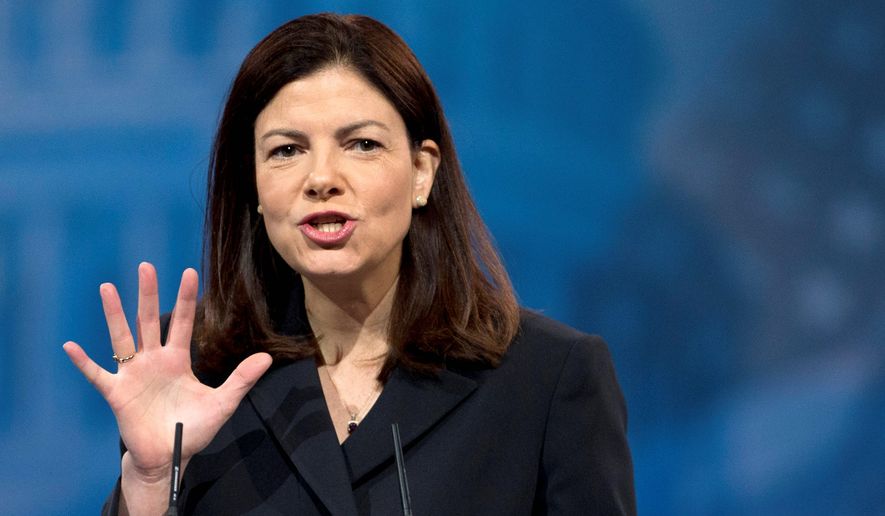A group of Republican senators on Thursday introduced legislation that would require President Obama to impose new economic sanctions on Iran in response to the series of ballistic missile tests recently carried out by the Islamic republic.
“Tough words alone will not deter the world’s worst state sponsor of terrorism from continuing to develop its ballistic missile program,” said Sen. Kelly Ayotte, New Hampshire Republican, who introduced the Iran Ballistic Missile Sanctions Act of 2016 on Thursday.
Senate Majority Leader Mitch McConnell of Kentucky, along with Sens. Marco Rubio of Florida, Mark Kirk of Illinois and Lindsey Graham of South Carolina co-sponsored the bill.
The legislative push comes as pressure has mounted on the White House to take retaliatory action against Tehran, whose ballistic missile tests last fall and again this month are seen to have violated existing U.N. Security Council resolutions banning such tests.
Critics say the tests also violate the spirit — if not the text — of the nuclear accord the U.S. and five international partners negotiated with Iran last summer, which the Obama administration openly hoped would bring a new moderation from Iran.
Republicans have criticized the White House for pushing through sanctions relief for Iran under the nuclear accord — even as administration officials have admitted that at least one of the recent missile tests was a “clear violation” of a 2010 U.N. Security Council resolution.
SEE ALSO: Cecile Richards of Planned Parenthood: Give Merrick Garland ‘a fair hearing’
“I have repeatedly called on the administration to impose tough sanctions against Iran for its illicit and dangerous ballistic missile activities. [The] administration has failed to do so, and the potential danger to our homeland, as well as the urgent threat to our forward deployed troops and our allies like Israel, is only growing,” Ms. Ayotte said in a statement.
“That is why today I have led an effort in the Senate to introduce legislation that would require the administration to impose tough, hard-hitting primary and secondary sanctions on every sector of the Iranian economy that supports Tehran’s ballistic missile programs,” she said.
There was no immediate response from the White House, although administration officials, including Secretary of State John F. Kerry, have suggested during recent weeks that Iran’s latest tests may warrant a leveling of fresh sanctions against Tehran.
Iranian officials insist the ballistic missile test are for defensive purposes only, and reject the charge that they violate U.N. mandates. Tehran’s U.N. Mission in New York said in a statement that the country “has never sought to acquire nuclear weapons and never will in the future,” The Associated Press reported.
“We spend a fraction of any other country in the region on defense, and missiles are a means of defense that we require,” Iranian Foreign Minister Javad Zarif, a key architect of the nuclear deal, said on a visit to Australia this week.
“Anybody who is crazy enough to attack us, we will attack back using conventional weapons,” he added. “We hope that these conventional weapons will never be used because we do believe that in a war, everybody loses.”
• Guy Taylor can be reached at gtaylor@washingtontimes.com.




Please read our comment policy before commenting.